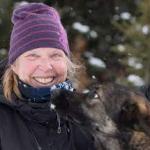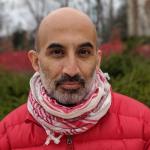Current and future Arctic community vulnerabilities to sea-ice change and economic expansion
Navigating the New Arctic (NNA) is one of NSF's 10 Big Ideas. NNA projects address convergence scientific challenges in the rapidly changing Arctic. The Arctic research is needed to inform the economy, security and resilience of the Nation, the larger region and the globe. NNA empowers new research partnerships from local to international scales, diversifies the next generation of Arctic researchers, enhances efforts in formal and informal education, and integrates the co-production of knowledge where appropriate. This award fulfills part of that aim by supporting planning activities with clear potential to develop novel, leading edge research ideas and approaches to address NNA goals. It integrates aspects of the natural environment and social systems, addresses important societal challenges, and engages internationally and with local and Indigenous communities.
Arctic communities are experiencing unprecedented transformation due to environmental changes and expanding and intensifying economic development. For example, as the climate warms, sea ice becomes thinner and less extensive, which enables the expansion of global trade and more shipping traffic with larger ships. This project is investigating the impacts of rapidly changing sea ice conditions on Arctic communities, how these changes interact with social and economic threats, and how the socio-economic and other contexts of the communities affect their vulnerabilities to both. The perspective and concerns of Artic peoples are at the core of this project, which brings together leaders of Indigenous communities from across the Arctic region with Western scientists to explore these issues at multiple scales. This project is identifying ways that scientific products can better serve communal needs, and thus narrow the gap between scientific projects and adaptation and resilience of Arctic communities. An anticipated outcome is the consolidation of a research team of community members, organizations, and academics to co-produce a research design to address community needs in a rapidly changing Arctic.
This proposal brings together the frameworks of Double Exposure and Contextual Vulnerability to develop an analytical framework for understanding how the synergic effects of rapidly changing climatic and non-climatic processes on Arctic communities are mediated by socio-economic, biophysical, and political contexts. This research is co-producing knowledge with coastal Indigenous communities in Alaska, Greenland, and other regions on the current and future Arctic vulnerabilities to sea-ice change to identify gaps and providing options by context as interpreted and framed by community members. The work is generating analytical frameworks and research designs for understanding the effects on and vulnerabilities of communities to climatic and non-climatic processes.
This award reflects NSF's statutory mission and has been deemed worthy of support through evaluation using the Foundation's intellectual merit and broader impacts review criteria.
This collaboration between Postigo (2022644, IU) and Landrum (2022641, UCAR) would fund a series of workshops to foster convergence among community and scientist knowledge, as well as among communities in different parts of the Arctic. Workshops would also identify research themes of concern to communities that will guide subsequent research proposals. Beginning in the summer of 2021, the following workshops will be conducted: Workshop 1: “Arctic Communities’ Concerns and Vulnerabilities”: Aasiatt, Greenland, Workshop 2: “Validating and Testing the Analytical Framework”: Chersky, Sakha-Yakutia, Siberia (alternate in Alaska, US) Workshop 3: “Presenting and Validating RD”: Alert Bay in Vancouver Island, British Columbia (Canada). The ongoing coronavirus pandemic has led to adjustments to timelines and inputs for workshops. The first workshop will lay some groundwork through participatory videos of perceptions of sea ice and community changes. Members of both the Greenland and Siberian communities have expressed interest in producing videos, interviewing community members to explore how changing conditions – sea ice, social, economic – are impacting their communities. This video work will be done by community members in their communities, and only if it can be done in a manner that complies with any local/tribal/federal safety guidelines with respect to the novel coronavirus (COVID-19). Workshops only, no fieldwork will be conducted.
Publications
Project Outcomes
The Navigating the New Arctic (NNA) award “Current and future Arctic community vulnerabilities to sea-ice change and economic expansion” was a $50K, 2 year strategic planning award. The primary goals of this award were to build relationships with Arctic community members, to explore how scientific products could serve Arctic communities, to better understand how rapidly changing environmental, social and economic changes are related in Arctic communities, and to form a team to explore possible research ideas braiding local knowledge and western science for future proposals.
The Arctic climate is changing profoundly and rapidly, with temperatures increasing at roughly four times the rate at lower latitudes, sea ice melting earlier and forming later, marine and terrestrial ecosystem populations shifting, and coasts eroding at unprecedented rates. Arctic communities are experiencing dramatic economic, social and political changes. Transportation, infrastructure, tourism and access to resources are being impacted by Increasing open water seasons due to decreasing sea ice. These changes are compounding to dramatically impact food availability, food preservation, cultural practices, health and well-being on community scales.
Arctic communities have historically been under-represented in western science Arctic research. Indigenous knowledge gained from learning how to live and thrive in the relatively harsh Arctic conditions over millenia has been largely discounted by western economies, policies and sciences. This project was dedicated to forming relationships between knowledge holders in Arctic communities living through tremendous environmental, social and economic changes and western scientists who wish to explore how tools of Indigenous knowledge and western science may braid together to help communities navigate ongoing and future changes.
This award began in the middle of the 2020 COVID pandemic, and as a result we pivoted our focus from in-person workshops to participating in on-line meetings, workshops and reaching out directly to contacts. We used this time as a period of reflection and education, seeking online educational material and opportunities to learn more about Arctic communities and how to interact respectfully. We have joined forces with other projects working in Arctic communities in an effort to reduce community fatigue. We have learned more about creating safe spaces for sharing of ideas, including engaging with local Indigenous organizations and contacts before going into communities, educating ourselves about history and culture of communities before visiting, sharing personal stories and connections to build trust and establish common ground, and to actively be present and allow for the significant time often required for the building and nurturing of relationships.
As things started opening up a bit after the COVID-19 pandemic, we were able to start going to communities and workshops in person. We have created relationships with Arctic community members, western colleagues, Indigenous leaders and NGOs doing work in Arctic communities regarding climate and economic changes. We have extended our understanding of co-production with Indigenous communities through multiple educational and professional workshops, leadership activities within the broader NNA community (co-facilitating workshops, mentoring students).
Community members and colleagues have expressed interest in co-hosting workshops and listening sessions next year in Nome, AK, Kirkenes, Norway and Kautokeino, Norway. We are working on educational flyers on climate change for schools and hosting a radio program with community members in Kotzebue. We are also exploring the possibility of putting together a community event featuring Indigenous and Western Science perspectives on climate change in Kotzebue this coming spring.
This work has had broader educational and institutional impacts. Over the course of this award we mentored 6 undergraduates on small research projects (as part of Research Experience for Undergraduates; REU). One of these students is moving on to graduate school and credits her REU experience with reinforcing her desire to pursue polar engineering research and serve Alaskan Native communities.
Many of my scientific colleagues are attempting to engage in with local communities, and trying to understand community needs for climate change information and scientific tools. As an organization we are relatively new to this arena. As scientists we are often uneducated with respect to how to respectfully engage communities.
My experiences in this award are serving to inform and guide my scientific peers in their journeys. I anticipate assisting with the development of educational materials for my scientific peers for guidance for working with and within communities, particularly with communities that have been historically underserved and under-represented in geosciences.
I will continue to nurture the individual and organizational relationships I’ve begun during this award. I hope to serve as a trusted source of scientific information for those who want it for their work from community to International levels. I anticipate participating in community workshops and events next year and am optimistic that the relationships I’ve built during this award and continue to nurture will continue and grow and assist me in extended my research into joint projects with Arctic communities.

